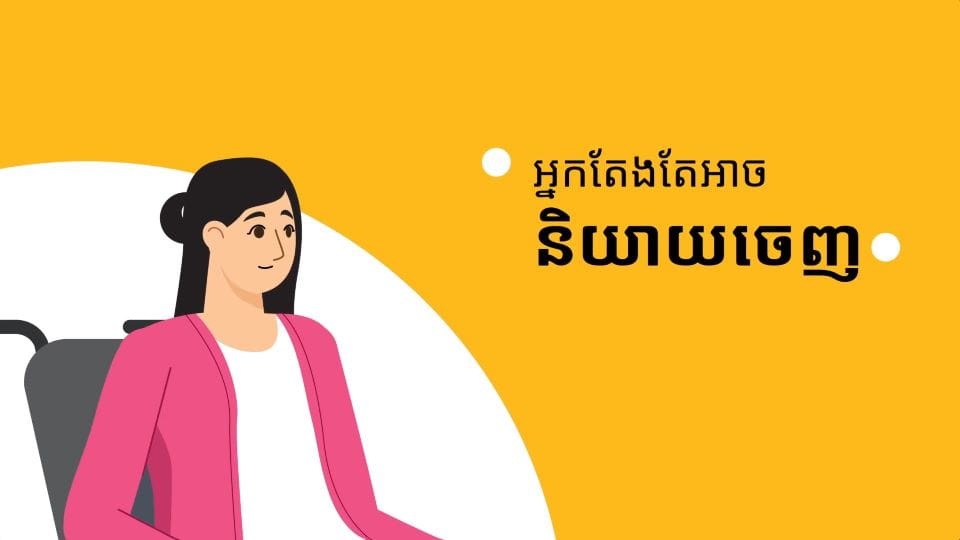
ដឹងពីសិទ្ធិរបស់អ្នកក្នុងនាមជាអ្នកចូលរួម NDIS
នៅក្នុងវីដេអូព័ត៌មាននេះ យើងរុករក សិទ្ធិនានារបស់អ្នកចូលរួម NDIS នៅក្នុង ការទទួលបានការគាំទ្រ និងសេវានានា។ ស្វែងយល់ពីសមត្ថភាពរបស់អ្នកក្នុងការធ្វើជម្រើស ទាក់ទងនឹងផែនការ NDIS របស់ អ្នក ផ្ដល់មតិកែលម្អ និងដោះស្រាយ បញ្ហា ណាមួយជាមួយអ្នកផ្ដល់សេវាកម្មនានា។ វីដេអូនេះរំលេចពីសារៈសំខាន់នៃការ
និយាយចេញ និងរបៀបចូលប្រើ ការគាំទ្រភាសា ប្រសិនបើត្រូវការ។ ស្វែងយល់ពីដំណើរការដែលមានភាពសម្ងាត់ និងមានសុវត្ថិភាពសម្រាប់មតិកែលម្អ ការធានាថាសំឡេងរបស់អ្នកត្រូវបានគេ
ស្តាប់ឮ តាមរបៀបមួយដែលយុត្តិធម៌ និងមានការគោរព។
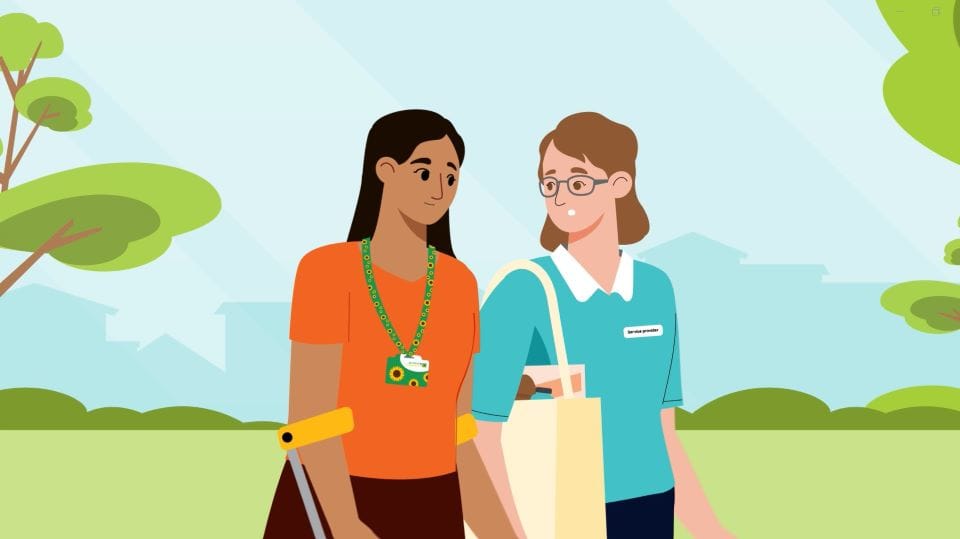
របៀបផ្ដល់មតិកែលម្អក្នុងនាមជាអ្នកចូល រួម NDIS | សិទ្ធិរបស់អ្នកត្រូវបានពន្យល់
នៅក្នុងវីដេអូជីវចលនេះ ស្វែងយល់ពី របៀបដែលអ្នកចូលរួម NDIS អាចផ្ដល់ មតិកែលម្អលើការគាំទ្រ ឬសេវានានា របស់ពួកគេ។ ប្រើរឿងរ៉ាវរបស់ Sara ជាឧទាហរណ៍ យើងនឹងណែនាំអ្នកតាម រយៈជំហាននានាដើម្បីលើកឡើងពីការព្រួយបារម្ភទាក់ទងនឹងអ្នកផ្ដល់សេវារបស់អ្នក របៀបស្វែងរកការគាំទ្រខាងការតស៊ូមតិ និងរបៀបធ្វើពាក្យបណ្ដឹងផ្លូវការទៅគណៈកម្មការ NDIS។ យល់ពីសិទ្ធិរបស់អ្នកចំពោះ ការថែទាំមានគុណភាព ជម្រើសដែលមាន ដើម្បីដោះស្រាយបញ្ហា និងរបៀបចូលប្រើ ជំនួយភាសា នៅពេលត្រូវការ។ ប្រសិនបើ អ្នកអ្នកធ្លាប់មានអារម្មណ៍មិនមាន
សុវត្ថិភាព ឬតម្រូវការរបស់អ្នកមិនបាន បំពេញ សូមកុំស្ទាក់ស្ទើរក្នុងការនិយាយ ចេញ—ជំនួយអាចរកបាន។
Download resources / ធនធាននានា
Brochure / សខិត្តប័ណ្ណ
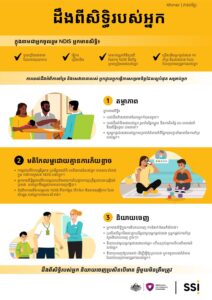
This infographic describes the rights of NDIS participants and outlines how they can give feedback step by step.
ខិត្តប័ណ្ណនេះពណ៌នាអំពីសិទ្ធិរបស់អ្នកចូលរួម NDIS និងចែងពីរបៀបដែលពួកគេអាចផ្ដល់មតិកែលម្អបានជាជំហានៗ។
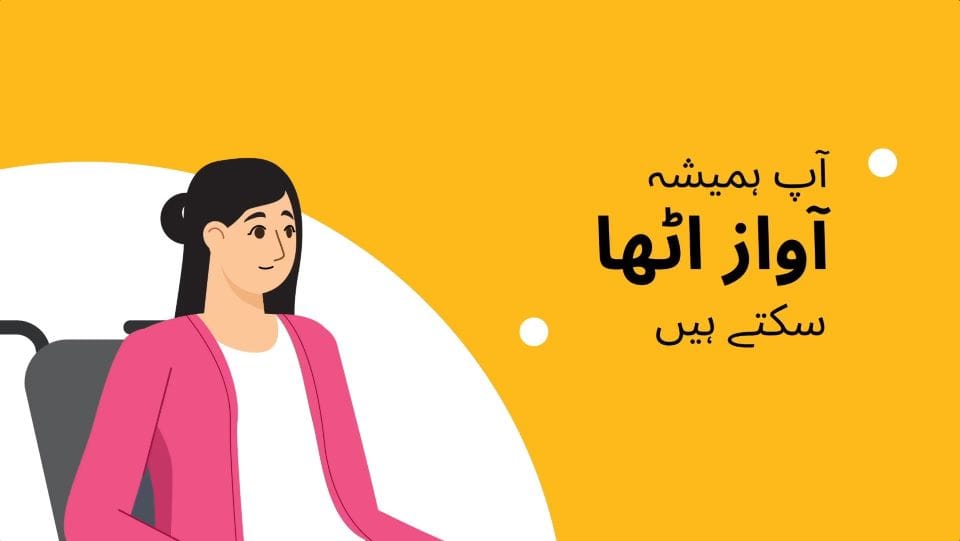
NDIS کا استعمال کرنے کے طور پ ر اپنے حقوق جانیں
اس معلوماتی ویڈیو میں، ہم سپورٹ اور خدمات تک رسائی کے حصول کے حوالے سے NDIS استعمال کرنے والوں کے حقوق کے بارے میں بات کرتے ہیں۔ اپنے NDIS پلان کے بارے میں انتخاب کرنے کی اپنی صلاحیت کے بارے میں جانیں، رائے فراہم کریں، اور سروس پرووائیڈرز کے ساتھ کوئی بھی مسئلہ حل کریں۔ ویڈیو آواز اٹھانے کی اہمیت کو اجاگر کرتی ہے اور یہ کہ ضرورت پڑنے پر زبان کی مدد تک کیسے رسائی حاصل کی جائے۔ رائے دینے کے لیے ہمارے رازدارنہ اور محفوظ عمل دریافت کریں، اور یقینی بنائيں کہ آپ کی آواز احترام اور انصاف کے ساتھ سنی جائے۔

NDIS استعمال کرنے کے طور پر رائے کیسے دی جائے | آپ کے حقوق کی وضاحت
اس اینیمیٹڈ ویڈیو میں جانیں کہ NDIS کا استعمال کرنے والے کس طرح اپنی سپورٹ یا خدمات پر رائے دے سکتے ہیں۔ سارہ کی کہانی کو ایک مثال کے طور پر استعمال کرتے ہوئے، ہم آپ کی رہنمائی کریں گے کہ آپ اپنےسروس سروس پرووائیڈر کے ساتھ خدشات کیسے اٹھائیں، وکالت کی حمایت کیسے حاصل کریں، اور NDIS کمیشن کو باضابطہ شکایت کیسے کریں۔ معیاری دیکھ بھال کے اپنے حقوق، مسائل کو حل کرنے کے لیے دستیاب اختیارات، اور ضرورت پڑنے پر زبان کی مدد تک رسائی کے طریقہ کار کو سمجھیں۔ اگر آپ کبھی غیر محفوظ محسوس کرتے ہیں یا آپ کی ضروریات پوری نہیں ہوتی ہیں، تو بات کرنے میں ہچکچاہٹ محسوس نہ کریں — آپ کے لیے مدد دستیاب ہے۔
Download resources / وسائل
Brochure / روشر
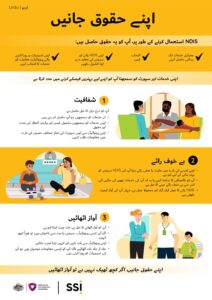
This infographic describes the rights of NDIS participants and outlines how they can give feedback step by step.
یہ بروشر NDIS کے شرکاء کے حقوق کی وضاحت کرتا ہے اور مرحلہ وار یہ بتاتا ہے کہ وہ رائے کیسے دے سکتے ہیں۔
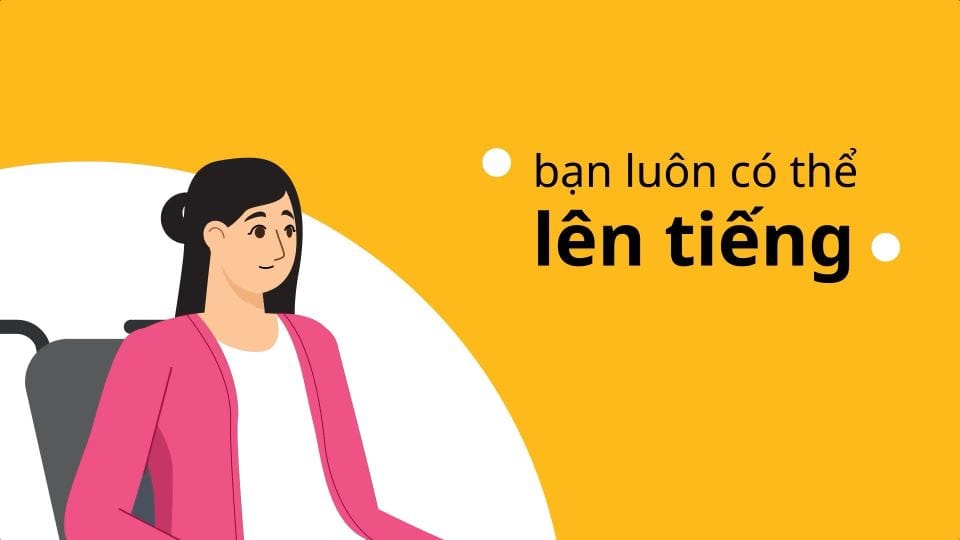
Biết Quyền hạn của Bạn khi là Người tham gia NDIS
Trong đoạn video thông tin này, chúng ta sẽ khám phá quyền hạn của người tham gia chương trình NDIS trong việc tiếp cận các dịch vụ và hỗ trợ. Tìm hiểu về khả năng đưa ra các lựa chọn liên quan đến kế hoạch NDIS của bạn, cung cấp ý kiến phản hồi và giải quyết mọi vấn đề với nhà cung cấp dịch vụ. Đoạn video này nhấn mạnh tầm quan trọng của việc lên tiếng và cách tiếp cận hỗ trợ ngôn ngữ nếu cần. Khám phá quy trình cung cấp ý kiến phản hồi an toàn và bảo mật, để đảm bảo ý kiến phản hồi của bạn được lắng nghe một cách công bằng và được tôn trọng.

Cách để cung cấp Ý kiến Phản hồi khi là Người tham gia NDIS
Trong đoạn video hoạt hình này, hãy tìm hiểu cách người tham gia NDIS có thể đưa ra ý kiến phản hồi về các dịch vụ hoặc hỗ trợ của họ. Lấy câu chuyện của Sara làm ví dụ, chúng tôi sẽ hướng dẫn bạn các bước để nêu lên mối quan ngại của bạn với nhà cung cấp dịch vụ, cách tìm kiếm sự hỗ trợ và cách khiếu nại chính thức lên Ủy ban NDIS. Hiểu rõ quyền hạn của bạn để được nhận sự chăm sóc có chất lượng, lựa chọn các phương án để giải quyết vấn đề và cách tiếp cận dịch vụ hỗ trợ ngôn ngữ khi cần. Nếu bạn cảm thấy không an toàn hoặc nhu cầu của bạn không được đáp ứng, đừng ngần ngại lên tiếng—chúng tôi luôn sẵn sàng trợ giúp.
Download resources / Nguồn tài Liệu
Brochure / Tờ rơi
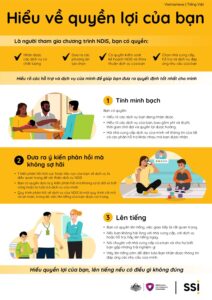
This infographic describes the rights of NDIS participants and outlines how they can give feedback step by step.
Tờ rơi này mô tả các quyền lợi người tham gia NDIS và nêu rõ cách họ có thể đóng góp ý kiến phản hồi từng bước.
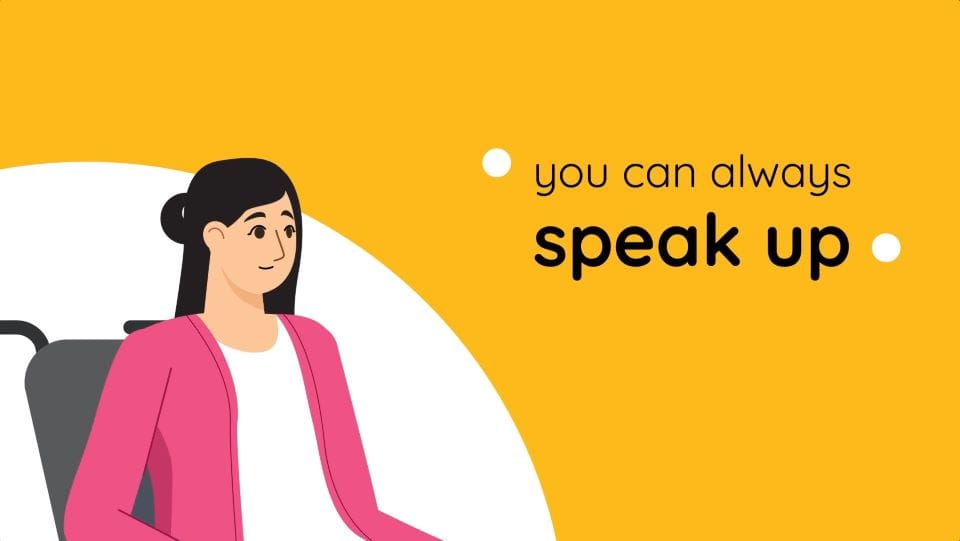
Know your rights as an NDIS participant
In this informative video, we explore the rights of NDIS participants in accessing supports and services. Learn about your ability to make choices regarding your NDIS plan, provide feedback, and resolve any issues with service providers. The video highlights the importance of speaking up and how to access language support if needed. Discover the confidential and safe process in place for feedback, ensuring your voice is heard in a fair and respectful manner.

How to give feedback as an NDIS participant
In this animated video, learn how NDIS participants can provide feedback on their supports or services. Using Sara’s story as an example, we’ll guide you through the steps to raise concerns with your service provider, how to seek advocacy support, and how to make a formal complaint to the NDIS Commission. Understand your rights to quality care, the options available to resolve issues, and how to access language assistance when needed. If you ever feel unsafe or your needs are not met, don’t hesitate to speak up—help is available.
Open the stakeholder kit
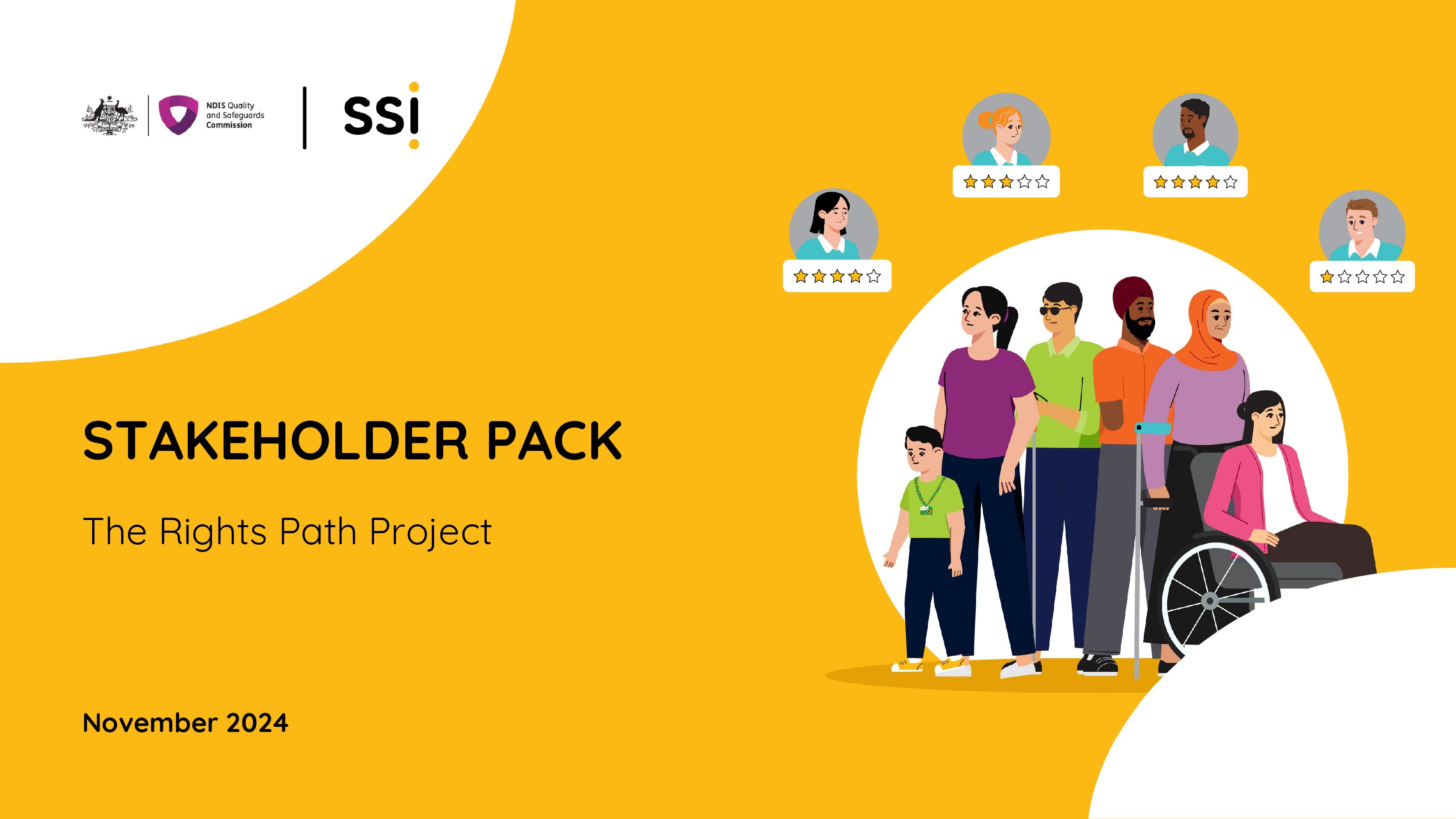
This stakeholder pack was developed to help NDIS providers, peaks and the sector to circulate and raise awareness about the rights of NDIS participants, especially amongst those from culturally and linguistically diverse (CALD) backgrounds. Stakeholders can use the information, guidance and resources available and strengthen feedback and complaints pathways, while promoting the rights of NDIS participants.
Resources
Brochure
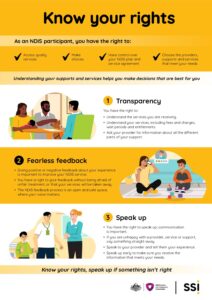
This infographic describes the rights of NDIS participants and outlines how they can give feedback step by step.
About SHER
Safe, Healthy and Empowered Relationships (SHER) is a Domestic and Family Violence behaviour intervention program for men who speak Dari and are living in Logan, Ipswich, Brisbane, Gold Coast or Moreton Bay.
The goal of this program is to increase safety for women and children by providing men an opportunity to take accountability for their actions recognising the harm their violence and behaviour choices are having on family.
This program helps you:
- Build effective ways to handle difficult situations without conflict
- Take responsibility for your actions and impact on others
- Build healthy family relationships as a father and husband
How we can help
This program is for men who:
- come from an Afghan Dari speaking background living in Logan, Ipswich, Brisbane, Ipswich, Gold Coast, or Moreton Bay
- are concerned about how their behaviour affects their family
- are ready to make positive changes in their relationships
The SHER program can help to:
- Understand the difference between unhealthy and healthy relationships
- Build new ways to handle difficult situations
- Take accountability for your actions to build a safer home for your family
- Build better connections with those you care about
Program structure
Individual support phase
- One-hour weekly sessions
- Private discussions with a skilled in-language facilitator
- Opportunity to discuss your specific situation
- Prepare for group work in a comfortable, private setting
- Explore new perspectives on family relationships
- Build strategies for creating a safer home environment
Group program phase (16 weeks)
- Weekly sessions
- Closed group format (same participants throughout the program)
- Learn from and support other men in similar situations
- Develop practical skills for positive change
Sessions take place every Thursday evening for 16 weeks, 6 – 8pm commencing April 2025
Gould Adams Community Centre, 558-662 Kingston Road, Kingston
Getting help
If you or someone is in immediate danger, please call Triple Zero (000) for emergency services.
If you are subjected to or impacted by sexual violence, know someone who is, or are triggered by this content and would like to access support, please contact:
- 1800 RESPECT – Call 1800 737 732, text 0458 737 732, chat online or video call via their website for confidential domestic, family and sexual violence counselling information and support services
- DV Connect – Call 1800 811 811 for immediate support with crisis transport and accommodation in QLD
- Lifeline – Call 13 11 14
- 99 Steps – 07 3412 8282 or 99steps@ssi.org.au for women from CALD backgrounds living in Logan/Beenleigh experiencing DFV. Support includes information, advice, case work support and referral
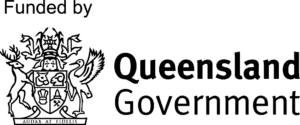
About Health Support Navigation Service
The service supports individuals from CALD and refugee populations, and those who are homeless or at risk of homelessness to have better access to primary health care in South Western Sydney Region
There is a critical need for improved service navigation to support better primary healthcare outcomes for CALD, refugee, and homeless communities. Many face barriers such as limited culturally appropriate services, low health literacy, stigma, and financial or mental health challenges. With the right care and support, people can more easily navigate the system and access the healthcare they need.
Who is this for?
People who are eligible for the service include those who:
- are residents of the South Western Sydney (SWS) region of city councils: Bankstown, Fairfield, Liverpool, Campbelltown, Camden, Wollondilly, Wingecarribee.
- are refugees, asylum seekers, homeless or at risk of homelessness
- are citizens, permanent residents or on temporary visas
What we do
Eligible participants receive:

Support services provided through a navigator

Free access to language translation and transport services by our Multicultural and linguistic supporters

Connection to community health services such as GPs, specialists, and other healthcare professionals

Individualised care plans and personal support service

Assistance with the application of a Medicare card where eligible

Access to financial support to cover gaps or fully funded in care and treatment costs

Individualised care plans and personalised support tailored to their specific health needs

Access to preventative health care
Type of medical services costs covered
- Medical appointments (primary and allied health, including specialists).
- Health checks
- Pathology
- Preventative health activities
- Wound care
- Medication
- Medical aids & equipment
- Transport to health appointments
- Nutritional support
- Health & wellness activities
We’re here to help

Our service navigators are culturally competent, and trauma informed and have qualifications or experience in healthcare.
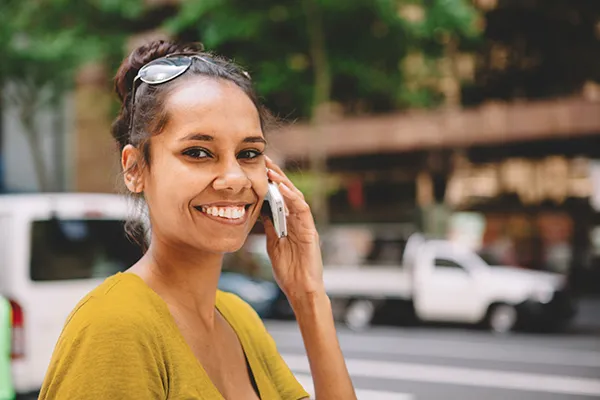
Each person is assigned a Multicultural Support Officer (MSO) who will help them every step of the way, ensuring they receive continuous care and personalised support based on their specific health needs.
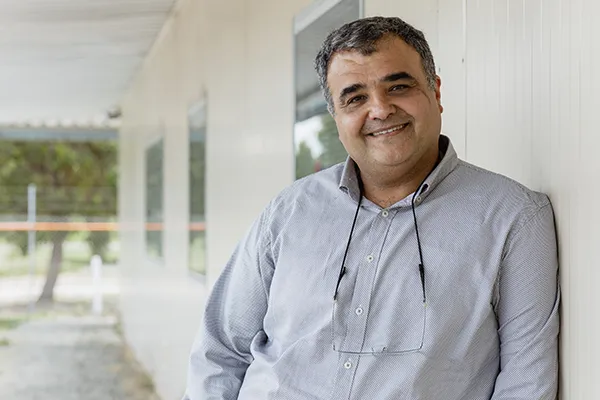
We offer ongoing support and work closely with other service providers, including healthcare and social services to make sure each person gets the complete care they need for their health and well-being.
Partner with us
We’d love to work with your organisation. Partner with us to bring your expertise to those who need it most.
Whether you’re a community health centre, GP clinic experienced with homeless populations, CALD and refugee community organisation, multicultural group, faith leader, or specialist service provider, we invite you to join us on this initiative.
- Co-host information sessions within your community
- Address the multifaceted needs of individuals and families within the target populations by facilitating smooth client transfers and referrals
- Provide your expertise to contribute to a robust referral network to ensure clients can access holistic support – from a range of services, including:
- CALD and refugee organisations
- Refugee and asylum seeker support services
- Homelessness support and services
- Community health providers and GPs
- Community and faith groups
Contact us at clientservices@ssi.org.au for more information.
Where we are
Address: 2/462 Chapel Road, Bankstown NSW 2200, Australia.
Daily, Monday – Friday
9:00am – 4:30pm
Address: 7 William St, Fairfield NSW 2165, Australia
Every Thursday
9:00am – 4:30pm
Address: 1/45-47 Scott Street, Liverpool NSW 2170, Australia
Postal address:
PO Box 152, NSW 1871, Liverpool
Meetings must be booked in advance
SSI Campbelltown Office
Address: Suite 2 level 6/138 Queen Street, Campbelltown NSW 2560, Australia
Meetings must be booked in advance
SSI Narellan Office (Direct support for Camden communities)
Address: Suite 2/39 Elyard Street, Narellan NSW 2567, Australia
Friday week 2 and week 3 monthly
10:00am – 4:00pm
Address: Community Bank BDCU, 411 Bong Bong St, Bowral 2576
Monthly (Contact for further information)
Address: 6 Harper Cl, Tahmoor NSW 2573
Wednesday Week 3 monthly
10:00am – 1:00pm
Address: 6 Harper Cl, Tahmoor NSW 2573
Wednesday Week 3 monthly
10:00am – 1:00pm
Address: Dr James Pirie Community Centre, 124 Bigge St, Liverpool NSW 2170
Every second and fourth Wednesday fortnightly.
Make a referral
Please use the form below to make a referral
| Charlie – Car enthusiast gains employment as a mechanic | Arabic | Simplified Chinese | Vietnamese | |
| Ellen – Pilot program helps Ellen get job-ready | Arabic | Simplified Chinese | Vietnamese | |
| Faith – SSI LAC participant on her way to becoming a chef | Arabic | Simplified Chinese | Vietnamese | |
| Ivan – SSI Local Area Coordinator helps bring stranded NDIS participants in the outback home safely | Arabic | Simplified Chinese | Vietnamese | |
| Peter – Peter’s journey of resilience, empowerment and taking part in the community | Arabic | Simplified Chinese | Vietnamese | |
| Sabrina – Aspiring teach gains independence with SSI’s support | Arabic | Simplified Chinese | Vietnamese | |
| Sonita – SSI NDIS participant reclaims independence | Arabic | Simplified Chinese | Vietnamese | |
| Taylor – Gaze-based communications device proves life-changing for teen SSI NDIS participant | Arabic | Simplified Chinese | Vietnamese | |
| Waseem – Finding a job and a community voice | Arabic | Simplified Chinese | Vietnamese | Urdu |
Improving safety outcomes for migrant and refugee women and children
The Train, Engage, Connect, Support (TECS) project seeks to engage and build the capacity of multicultural community and faith leaders across Australia to prevent and respond to family, domestic and sexual violence (FDSV), in collaboration with specialist services.
This is a collaborative initiative, which recognises the importance of mobilising communities to address FDSV – a universal issue. Faith and community leaders supporting multicultural communities share our vision of respect, safety, and equality for all and have a unique and critical role to play as social responders. The TECS project has developed learning resources to support leaders to take action to prevent and respond to FDSV in their communities.
Fostering a supportive and inclusive environment is crucial—one where victim survivors of FDSV feel empowered to seek help, and individuals who use FDSV are held accountable for their actions.
The TECS project is supported by the Australian Government under the National Plan to End Violence Against Women and Children 2022-2032. The project is delivered by SSI in partnership with the Federation of Ethnic Communities’ Councils of Australia (FECCA).
Safer, stronger communities free from violence: our approach
In collaboration with community leaders, faith leaders, people from migrant and refugee communities with lived experience, and key sector stakeholders, the project involves:

National consultations with nearly 300 faith and community leaders, victim survivors and sector stakeholders across all states and territories.

Collaboration with faith and community leaders, victim survivors and sector stakeholders to co-design and deliver an evidence-based, culturally responsive national training package for faith and community leaders.

Facilitation of learning circles to support leaders to provide feedback, connect and share experiences following completion of the training.
Taking action to keep multicultural communities safe: Faith and community leaders training
The TECS project’s co-designed learning materials support community and faith leaders from migrant and refugee communities to prevent, identify and respond to FDSV. These resources are available to community and faith leaders across Australia who want to build their skills in understanding FDSV and support their communities to address these issues.
The training package includes:
- An interactive e-learning course to increase faith and community leaders’ confidence to understand and shape their role in recognising FDSV, responding appropriately, and referring victim-survivors to appropriate services. Includes vignettes featuring diverse community and faith leaders to highlight the role leaders can play in responding to FDSV.
- A conversation guide to help leaders recall core information from the e-learning and have conversations about FDSV in their communities. This is available within the e-learning.
- Opportunity to join a learning circle where you can connect with other leaders who have also completed this training. The registration link for this is available within the e-learning.
Certificates are available for leaders who complete the e-learning course.
Download stakeholder engagement toolkit
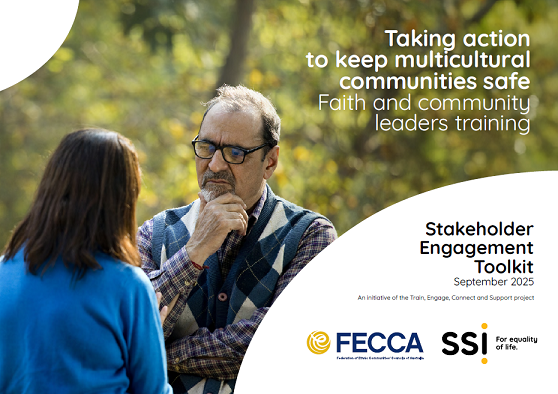
This toolkit helps to promote our free training for community and faith leaders to learn how to safely support people experiencing family, domestic, and sexual violence in their community.
Download promotional flyer/poster
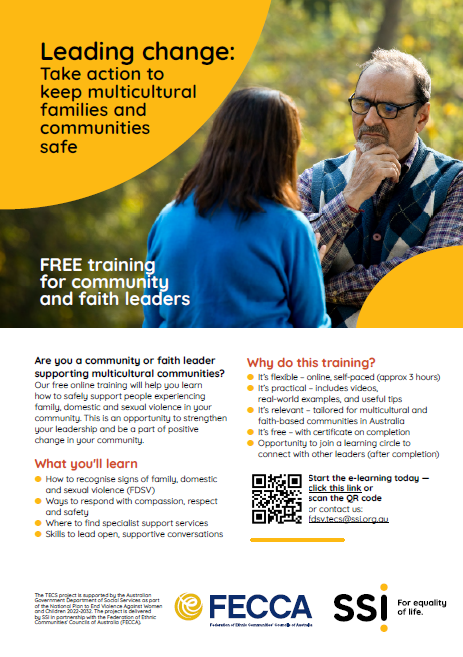
This flyer/poster is available to help promote our free training for community and faith leaders supporting multicultural communities.
Download policy insight
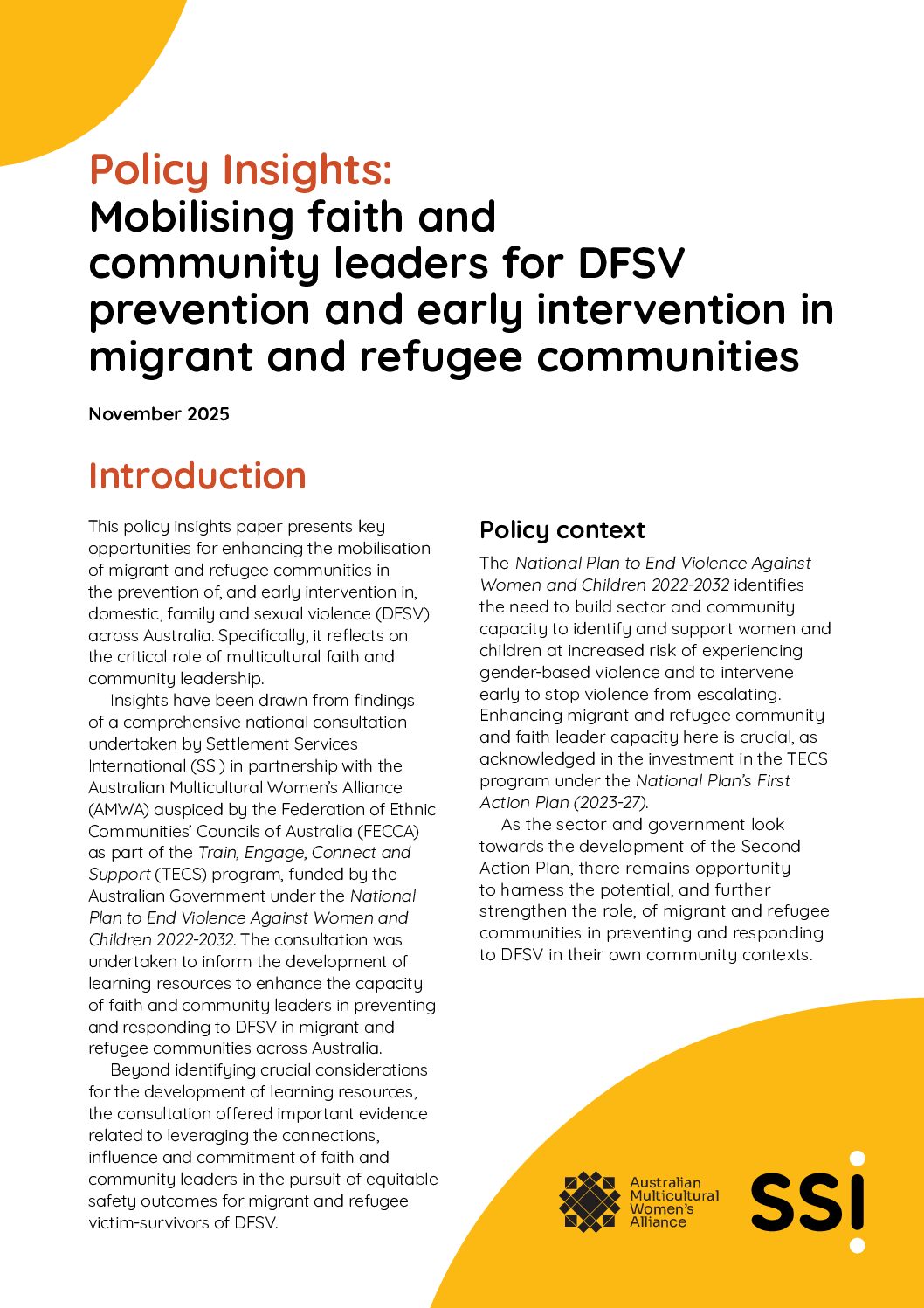
This policy insights paper presents key opportunities for enhancing the mobilisation of migrant and refugee communities in the prevention of, and early intervention in, domestic, family and sexual violence (DFSV) across Australia. Specifically, it reflects on the critical role of multicultural faith and community leadership.
Get in touch
For more information about this project, please contact us at fdsv.tecs@ssi.org.au or call our Community Engagement Coordinator on 0466 217 497.
Do you need support?
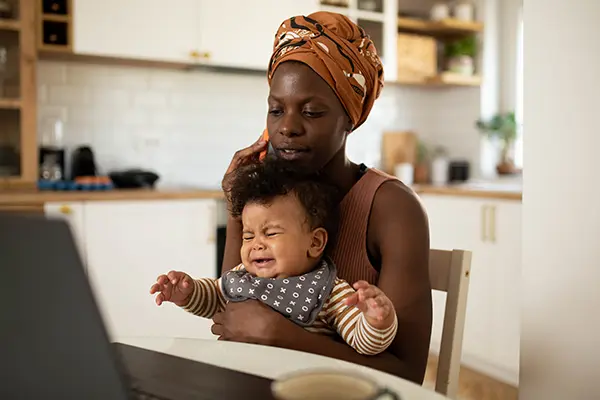
1800RESPECT – 1800 737 732
This is a 24-hour national sexual assault, family and domestic violence counselling line for any Australian who has experienced or is at risk of, family and domestic violence and/or sexual assault.
Individuals can also access local support services and search the internet using Daisy, a free app developed by 1800RESPECT that protects user privacy.
If you need translation or interpreting services call:
Translating and Interpreting Service National on 13 14 50 and ask them to contact 1800 RESPECT for you.
For callers who are deaf or have a hearing or speech impairment call National Relay Service and ask them to contact 1800RESPECT
- TTY/Voice Calls – phone 133 677
- Speak and Listen – phone 1300 555 727
- Internet relay users – visit the National Relay Service website
MensLine Australia – 1300 789 978
Supports men and boys who are dealing with family and relationship difficulties. 24/7 telephone and online support an information service for Australian men.
Men’s Referral Service – 1300 766 491
This service from No to Violence offers assistance, information and counselling to help men who use family violence.
Kids Help Line – 1800 55 1800
Australia-wide free 24/7, confidential and private counselling service specifically for children and young people aged five to 25 years.
Elder Abuse Help Line – 1300 651 192
Free information and support services for people who experience or witness the abuse of an older person. Operating hours vary.
Financial Counselling Australia – 1800 007 007
Access free resources and advice from a private financial counsellor. Call 1800 007 007 to speak to someone in your state.
13YARN – 13 92 76
The first national crisis support line for mob who are feeling overwhelmed or having difficulty coping.
They offer a confidential one-on-one yarning opportunity with a Lifeline-trained Aboriginal & Torres Strait Islander Crisis Supporter.
About SafePath
Victims of sexual violence from culturally and linguistically diverse (CALD) communities face unique challenges in reporting and reaching out for assistance when there is a lack of culturally responsive and trauma-informed services. Often, sexual violence services are not equipped with culturally and linguistically informed information, further enhancing barriers that victims may experience.
SafePath is a two-year project funded until June 2025 by the Department of Communities & Justice. The project aims to further equip frontline practitioners in identifying and responding to CALD victim survivors of sexual violence perpetration.
How we help
SafePath will develop culturally and linguistically informed resources to support victim-survivors, practitioners, and wider communities about sexual violence.
We invite you to share and use the resources when they are available. Some resources will be available in-language.
Getting help
If you or someone is in immediate danger, please call Triple Zero (000) for emergency services.
If you are subjected to or impacted by sexual violence, know someone who is, or are triggered by this content and would like to access support, please contact:
- Full Stop Domestic Violence helpline on 1800 385 578 or Full Stop NSW Sexual Violence Helpline on 1800 424 017
- Lifeline on 13 11 14
Get in touch
Should you have any comments, feedback, or questions, please contact us.
E: info@ssi.org.au
P: 02 8799 6700
About the program
The Strategies to Prevent Modern Slavery (SToP Modern Slavery) project was funded by the Federal Attorney-General’s Department to develop short story-based videos as an education tool to deepen knowledge and understanding of modern slavery in all its forms.
The videos particularly focus on forced labour, domestic servitude within intimate partner relationships, and forced marriage, as three forms of modern slavery. They are designed to deliver sessions to hold meaningful and engaging discussions and reflection to understand the nuances around these forms of modern slavery.
“The approach of using story-based videos and facilitating discussions
has led to ongoing conversations with the community.”
The videos
A series of short videos explains the three forms of modern slavery in simple, relatable terms, using examples developed in partnership with communities. These videos can be used in group discussions or as a self-reflective exercise, and some are also available in Arabic, Dari and Chinese.
How do you want to use the videos?
What is modern slavery?
In Australia, modern slavery is defined as ‘a range of serious exploitative practices which includes human trafficking, slavery, slavery like practices, and the worst forms of child labour.’ (National Action Plan to Combat Modern Slavery 2020-2025).
Modern slavery includes situations where people are forced to work or marry against their will, are not paid properly, are controlled through threats, deception, coercion, and cannot safely walk away from the situation.
Forms of modern slavery:
- Human trafficking
- Deceptive recruitment
- Forced marriage
- Slavery
- Debt bondage
- Forced labour
- Worst forms of child labour
- Domestic servitude
Some signs someone may be in a modern slavery situation:
- They are not allowed to leave their work or home freely.
- Their passport or ID is held by someone else.
- They are afraid to speak up or seek help.
- They work long hours with little or no pay.
- They are under constant surveillance or control.
Learn more about the Strategies to Prevent Modern Slavery (SToP) Program
About Strategies to Prevent Modern Slavery (SToP)
The Strategies to Prevent Modern Slavery (SToP Modern Slavery) Project was funded by the Attorney-General’s Department under the National Action Plan to Combat Modern Slavery 2020-25. The program aimed to develop short story-based videos as an education tool to deepen knowledge and understanding with migrant and refugee communities around modern slavery. This project was guided by a reference group comprising of community leaders, people with lived experience, and experts.
The consultation process
As part of the Strategies to Prevent (SToP) Modern Slavery program, community consultations were undertaken across New South Wales and Queensland, with some exploratory engagement initiated in Victoria. These consultations included a combination of individual interviews and group discussions involving 84 participants, including community members, faith leaders, people with lived experience, community leaders, and frontline workers from over 20 culturally and linguistically diverse communities. The process provided critical insights into community perceptions, knowledge gaps, and the culturally specific ways in which modern slavery is experienced, understood, and addressed within different communities.
The co-design process
The co-design of these resources was undertaken in genuine partnership with community leaders, individuals with lived experience, and community organisations – ensuring that their cultural expertise and insights meaningfully shaped the content.
How did we create these videos?
A series of story-based videos were developed to present the complex issues of forced labour, forced marriage, and domestic servitude within intimate partner relationships in a simple, engaging, and culturally relevant manner.
Developed with cultural sensitivity and respect, these videos break down complex concepts into relatable contexts, making them more accessible and impactful for diverse communities. Importantly, the videos present these issues in a way that allows for othering, fostering a sense of empowerment through awareness, education, and meaningful engagement aimed at challenging and disrupting harmful norms and practices through the medium of stories and film.
“Proud that I attended this session, if you hear anything problem, you must report to the police system, this is good information.”
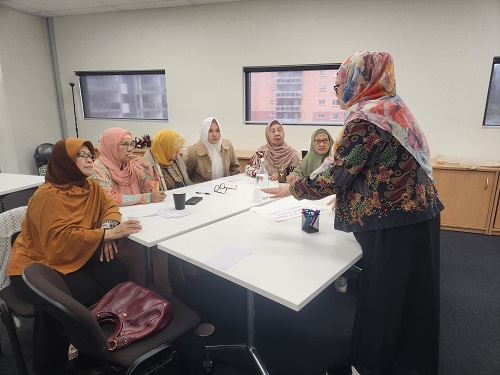
“Simple video presentation and explanation about the issue.”
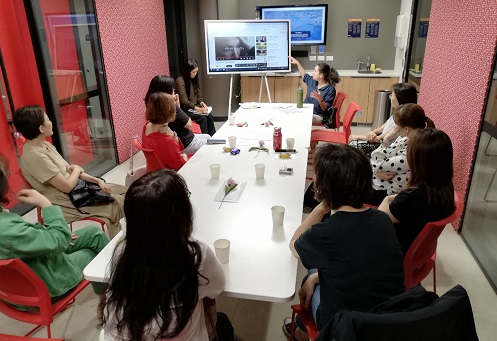
“In my opinion, this session was very great and I learn a lot. I know this sort of sessions will help women to share their stories and it will inform them to get help if needed. It was great to be here. Thanks a lot.”

“We need more awareness. These services are useful for early marriage.”
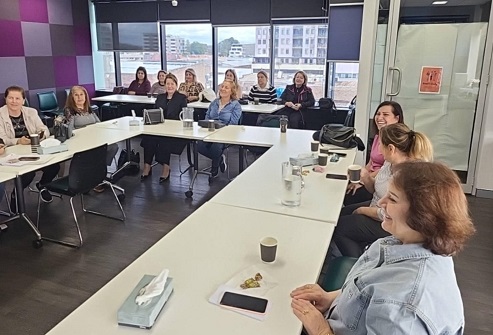
“I have gained more knowledge about domestic servitude and would share to my friends and close relatives.”
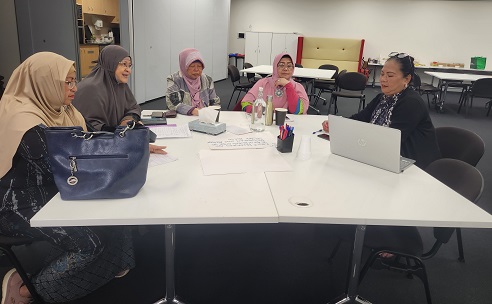



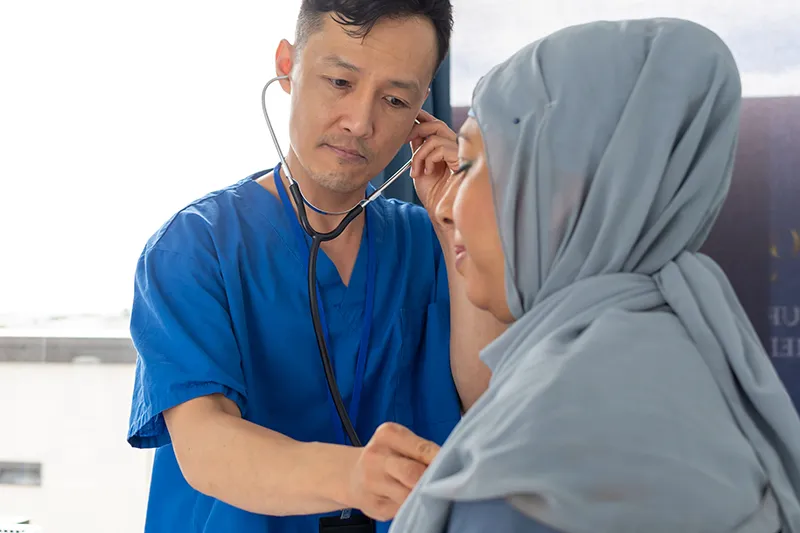
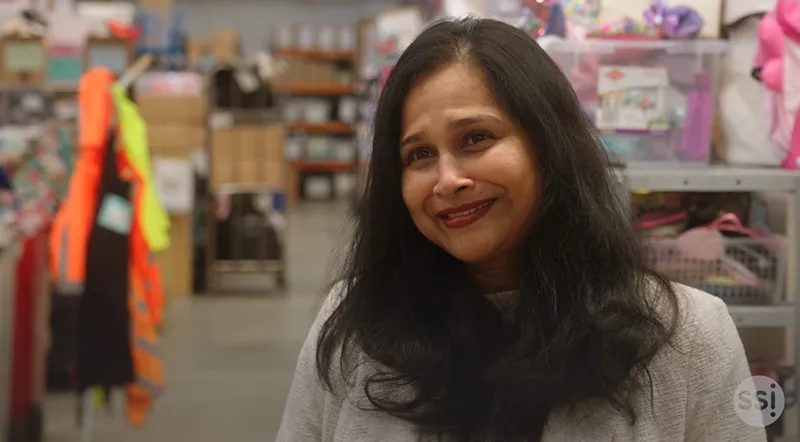
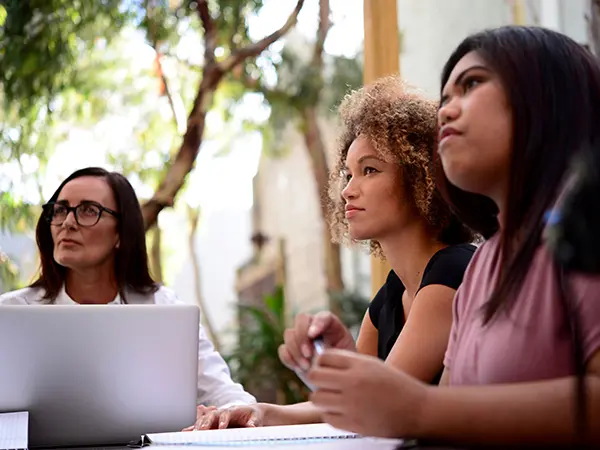
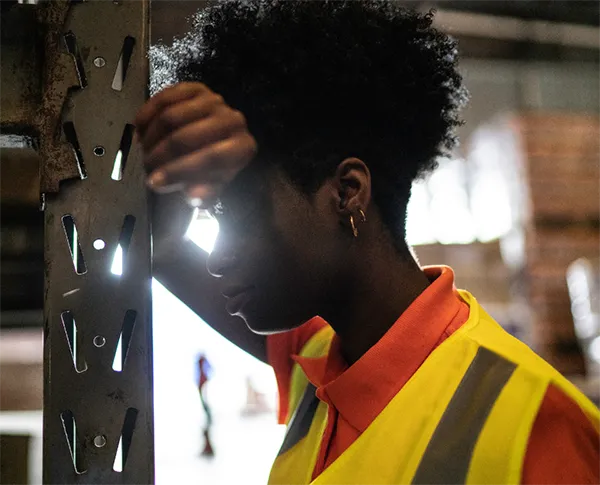
Download social media and newsletter tiles